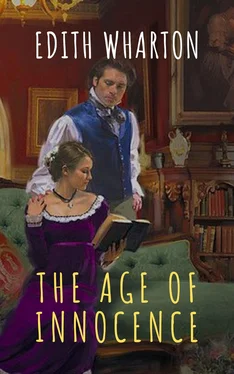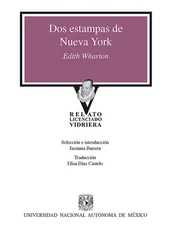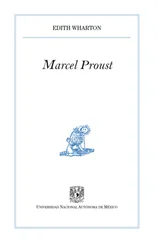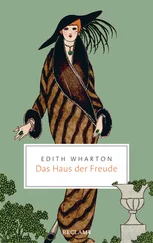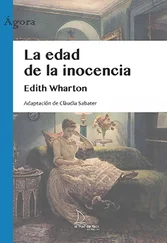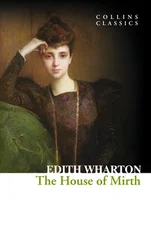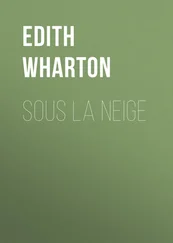Mrs. Archer, who knew this to be a hint that the seventeen-hand chestnuts which were never kept waiting were at the door, rose with a hurried murmur of thanks. Mrs. van der Luyden beamed on her with the smile of Esther interceding with Ahasuerus; but her husband raised a protesting hand.
"There is nothing to thank me for, dear Adeline; nothing whatever. This kind of thing must not happen in New York; it shall not, as long as I can help it," he pronounced with sovereign gentleness as he steered his cousins to the door.
Two hours later, every one knew that the great C-spring barouche in which Mrs. van der Luyden took the air at all seasons had been seen at old Mrs. Mingott's door, where a large square envelope was handed in; and that evening at the Opera Mr. Sillerton Jackson was able to state that the envelope contained a card inviting the Countess Olenska to the dinner which the van der Luydens were giving the following week for their cousin, the Duke of St. Austrey.
Some of the younger men in the club box exchanged a smile at this announcement, and glanced sideways at Lawrence Lefferts, who sat carelessly in the front of the box, pulling his long fair moustache, and who remarked with authority, as the soprano paused: "No one but Patti ought to attempt the Sonnambula."
It was generally agreed in New York that the Countess Olenska had "lost her looks."
She had appeared there first, in Newland Archer's boyhood, as a brilliantly pretty little girl of nine or ten, of whom people said that she "ought to be painted." Her parents had been continental wanderers, and after a roaming babyhood she had lost them both, and been taken in charge by her aunt, Medora Manson, also a wanderer, who was herself returning to New York to "settle down."
Poor Medora, repeatedly widowed, was always coming home to settle down (each time in a less expensive house), and bringing with her a new husband or an adopted child; but after a few months she invariably parted from her husband or quarrelled with her ward, and, having got rid of her house at a loss, set out again on her wanderings. As her mother had been a Rushworth, and her last unhappy marriage had linked her to one of the crazy Chiverses, New York looked indulgently on her eccentricities; but when she returned with her little orphaned niece, whose parents had been popular in spite of their regrettable taste for travel, people thought it a pity that the pretty child should be in such hands.
Every one was disposed to be kind to little Ellen Mingott, though her dusky red cheeks and tight curls gave her an air of gaiety that seemed unsuitable in a child who should still have been in black for her parents. It was one of the misguided Medora's many peculiarities to flout the unalterable rules that regulated American mourning, and when she stepped from the steamer her family were scandalised to see that the crape veil she wore for her own brother was seven inches shorter than those of her sisters-in-law, while little Ellen was in crimson merino and amber beads, like a gipsy foundling.
But New York had so long resigned itself to Medora that only a few old ladies shook their heads over Ellen's gaudy clothes, while her other relations fell under the charm of her high colour and high spirits. She was a fearless and familiar little thing, who asked disconcerting questions, made precocious comments, and possessed outlandish arts, such as dancing a Spanish shawl dance and singing Neapolitan love-songs to a guitar. Under the direction of her aunt (whose real name was Mrs. Thorley Chivers, but who, having received a Papal title, had resumed her first husband's patronymic, and called herself the Marchioness Manson, because in Italy she could turn it into Manzoni) the little girl received an expensive but incoherent education, which included "drawing from the model," a thing never dreamed of before, and playing the piano in quintets with professional musicians.
Of course no good could come of this; and when, a few years later, poor Chivers finally died in a mad- house, his widow (draped in strange weeds) again pulled up stakes and departed with Ellen, who had grown into a tall bony girl with conspicuous eyes. For some time no more was heard of them; then news came of Ellen's marriage to an immensely rich Polish nobleman of legendary fame, whom she had met at a ball at the Tuileries, and who was said to have princely establishments in Paris, Nice and Florence, a yacht at Cowes, and many square miles of shooting in Transylvania. She disappeared in a kind of sulphurous apotheosis, and when a few years later Medora again came back to New York, subdued, impoverished, mourning a third husband, and in quest of a still smaller house, people wondered that her rich niece had not been able to do something for her. Then came the news that Ellen's own marriage had ended in disaster, and that she was herself returning home to seek rest and oblivion among her kinsfolk.
These things passed through Newland Archer's mind a week later as he watched the Countess Olenska enter the van der Luyden drawing-room on the evening of the momentous dinner. The occasion was a solemn one, and he wondered a little nervously how she would carry it off. She came rather late, one hand still ungloved, and fastening a bracelet about her wrist; yet she entered without any appearance of haste or embarrassment the drawing-room in which New York's most chosen company was somewhat awfully assembled.
In the middle of the room she paused, looking about her with a grave mouth and smiling eyes; and in that instant Newland Archer rejected the general verdict on her looks. It was true that her early radiance was gone. The red cheeks had paled; she was thin, worn, a little older-looking than her age, which must have been nearly thirty. But there was about her the mysterious authority of beauty, a sureness in the carriage of the head, the movement of the eyes, which, without being in the least theatrical, struck his as highly trained and full of a conscious power. At the same time she was simpler in manner than most of the ladies present, and many people (as he heard afterward from Janey) were disappointed that her appearance was not more "stylish" —for stylishness was what New York most valued. It was, perhaps, Archer reflected, because her early vivacity had disappeared; because she was so quiet—quiet in her movements, her voice, and the tones of her low- pitched voice. New York had expected something a good deal more reasonant in a young woman with such a history.
The dinner was a somewhat formidable business. Dining with the van der Luydens was at best no light matter, and dining there with a Duke who was their cousin was almost a religious solemnity. It pleased Archer to think that only an old New Yorker could perceive the shade of difference (to New York) between being merely a Duke and being the van der Luydens' Duke. New York took stray noblemen calmly, and even (except in the Struthers set) with a certain distrustful hauteur; but when they presented such credentials as these they were received with an old-fashioned cordiality that they would have been greatly mistaken in ascribing solely to their standing in Debrett. It was for just such distinctions that the young man cherished his old New York even while he smiled at it.
The van der Luydens had done their best to emphasise the importance of the occasion. The du Lac Sevres and the Trevenna George II plate were out; so was the van der Luyden "Lowestoft" (East India Company) and the Dagonet Crown Derby. Mrs. van der Luyden looked more than ever like a Cabanel, and Mrs. Archer, in her grandmother's seed-pearls and emeralds, reminded her son of an Isabey miniature. All the ladies had on their handsomest jewels, but it was characteristic of the house and the occasion that these were mostly in rather heavy old-fashioned settings; and old Miss Lanning, who had been persuaded to come, actually wore her mother's cameos and a Spanish blonde shawl.
Читать дальше
